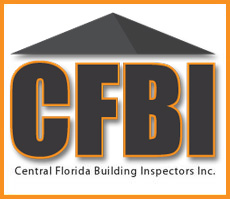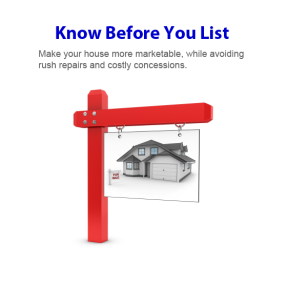by cfbi1 | Apr 23, 2014 | Home Inspection

Photo Credit
People looking to invest in a home, often search through multiple properties in order to take advantage of lower priced homes and find a cheap bargain. The thing is this, just because the home is on the market for a cheap listed price does not mean it can bypass a professional home inspection.
There are a few questions that you need to ask when you find a home that has been listed on the property market for awhile, and listed at a cut down cheap price.
1. How old is the house?
2. Has the home been vacant and for how long?
3. Why is the home so cheap?
If you are looking at buying a home or property, and the questions above are relevant to your situation, you probably need to get in touch with a home inspection company. Every single home or property has issues, especially if the house is older. The older the home, the more likely the issues are of higher concern and need more attention.
As a home investor you need to be aware of what exactly you are buying and if it will cost you more in the end.
That’s the beauty of a home inspection; a completed inspection is a detailed accounting and filled with information regarding the property that has been inspected. This is useful to the buyer/investor as it show the buyer all there is to know about the property they want to buy.
A good point to keep in mind is that a “good deal” is never a “good deal” until you actually know everything included in the deal. The best way for you to know if you’re getting a good deal on any property is to have a fully completed home inspection in front of you.
This way you can weigh up the potential repair costs needed, and then make an informed decision based on the inspection results.
If anything you must remember this phrase “Caveat Emptor” which is Latin for let the buyer beware. Know what you’re buying, as in all things, if it’s too good to be true it usually is.
by cfbi1 | Apr 22, 2014 | Home Inspection

Image Source
Did you know that if you buy a home in Florida that many insurance companies require that you have a specialized inspection on your property before they will extend any insurance coverage on it?
As a homebuyer, in Florida, it’s easy to confuse an insurance inspection with a typical home inspection. Let’s learn the difference. A home inspection is needed for a homebuyer because it gives a detailed report and professional evaluation of the entire property you want to buy.
A professional home inspection provides the details needed to help make an informed decision when it comes to buying a property.
There are a few different types of insurance inspections and each cover various areas of the home. Take a look at the different types available.
Firstly, a four point inspection covers the roof, plumbing system, HVAC, and electrical systems all are inspected.
Secondly, wind mitigation test, the homes wind resistant features will all be tested. The roof, windows, gable ends, and wind shutters reviewed, and the completed report is sent to the insurance agency. The Insurance Company then calculates any available discounts and lowers the home insurance premium.
Thirdly, a roof certification is needed for any insurance coverage to be considered on that property over a certain age. The roof will be professionally checked for leaks, damage, and other faults may need fixed before the insurance company considers covering the structure.
These three insurance inspection examples are not always required, and not always included in a pre-purchase inspection. They are more specialized skills and can come as part of specialist service offered by a local home inspection company.
If you need help with any type of home inspection or specialized inspection, Click Here to browse our inspection services and what is included in each service.
by cfbi1 | Apr 21, 2014 | Home Inspection
It happens during every home sale. Homeowners neglect to prepare their homes in order make sure the home inspection runs as smoothly as possible. The advantage of preparing your home is it can ensure that you receive a thorough inspection report.

Image Source
Home inspectors generally arrive early to any property he or she is required to inspect, sometimes up to 45-minutes prior to appointment time. This gives the inspector adequate time to get any equipment set up that allows them to carry out a professional home inspection. As a homeowner, you expect and prepare for an early knock at the door from your selected qualified home inspector; by knowing this you can avoid opening the door with your bed hair all over the place, and yawning with eyes half shut.
If you know when the home inspector is coming, make sure that your home is clutter free. All crawl spaces and your should be easily accessible. What you don’t want is the home inspector having to move and rearrange personal belongings around in order to carry out their home inspection service.
Try to make sure your home is clean, clutter-free, and remember, if your home does have defects, don’t purposely hide them out of sight. Anything that is hidden will more than likely be found and any discovery of “purposely” hidden issues only makes you, the homeowner, feel embarrassed.
The best advice for anyone selling a home would be to get a pre-listing inspection carried out. Having a pre-listing inspection will give you the information that you need to get any repairs fixed to help increase the chance of selling your home, as well as, helping the process go as smoothly as possible.
by cfbi1 | Apr 18, 2014 | Home Inspection

Even if you feel well prepared, and have done as much as you can to sell your home; get ready to brace yourself because the inspector (hired by the buyer) can find something wrong! As a seller, it is essential to understand a home inspector is meticulous, and it’s his/her job to find any issues concerning the property.
In most cases, properties have been kept in good condition, meaning that many of the problems needing fixed are both manageable and inexpensive. Although, the deal can be killed when a home inspector finds major concerns and deficiencies, added in with an unwilling seller that is not looking to negotiate.
When selling a house, make it a priority to have the property at its highest quality condition, and ready before any buyer arrives with their own hired inspector. One great way to make sure your home is ready is to contact a local home inspection company to assess the property prior to your home going on the market.
For sellers a pre-listing inspection lets you will know, in detail, what exactly needs fixing and repaired. This helps greatly, as you can take care of the repairs before you start to look for a prospective buyer.
Having your own inspection report handy with a list of the issues that have been fixed is helpful, and it has a positive effect when presented to potential buyers. You want to leave potential buyers with no doubt that the property is in the best shape and the right future home for them.
A pre-listing inspection does make sense, it’s the one service as a home seller that can give you the information that you need in order to make your home sale a success.
by cfbi1 | Apr 17, 2014 | Home Inspection

It is always the better option to get in touch with a professional home inspection company to ensure an accurate evaluation of your home/property. There are, however, some things that you can look out for before hiring an inspector to keep you “in the know” of what’s broken, what’s needs repaired immediately, and what’s in good condition.
As a homeowner, it’s your responsibility and no one else’s to ensure your home is well kept and maintained to a reasonable standard. This means all odd jobs and repairs around the property are yours to keep on top of.
Like many people, you may not have the time, due to work commitments. You may need to use your vacation time to handle the tasks of maintaining your property, and keep it in tiptop shape.
Areas that you should be looked at include the roof and chimney (if you have one). The thing about a roof and/or chimney is you don’t usually notice any problems until the problem itself is too far advanced.
Another area is water leak trails. These are fairly visible, but locating the source of the leak is a little harder. It would be better to hire a home inspector who has experience in accessing crawl spaces, and attics to help locate the problem. They can advise on what steps should be taken next.
Another area that needs your attention around the home is the gutters; make sure your gutters are free of debris and clean. Clogged up gutters and down pipes will cause water to overflow and spill onto the surrounding area below.
Keep an eye on any cracks that have appeared in walls inside and outside of the house. Cracks in walls could mean serious foundation problems. Make sure that you take the time out and check over your home. If you do see cracks, contact an inspector to get an idea of how bad the situation is.
Even though there are areas that you can keep an eye on regularly, houses sometimes shift and could compromise the strength of the structure. If you notice cracks around the foundation, call us for an initial free consultation.





